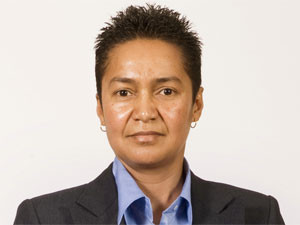
The state is set to finally appoint a CIO by April, filling a crucial post that has been vacant since April 2011
Ndivhuwo Wa Ha Mabaya, head of communications in the Department of Public Service and Administration, says the department's intention is that the position will be filled by the end of April, although candidates still have to be short-listed.
Government has been without an IT head since the resignation of CIO Michelle Williams at the end of April 2011. She initially took up the position in November 2007.
Wa Ha Mabaya explains the department advertised the post, but the minister was not happy with the quality of candidates, and it then embarked on an additional headhunting process. The interview stage has yet to start, after which the candidate needs to be approved by Cabinet, he adds.
Walter Mudau, chief director of operations within the office of the government CIO, has been acting in the position for some time. The government CIO is a critical role as the office oversees various ICT aspects such as the state's ICT, governance and security framework.
Williams, who also served as SITA's deputy chairperson, was embroiled in the high-profile controversy surrounding the resignation of the agency's CEO, Llewellyn Jones, in 2009. Jones, a respected ICT veteran, left the agency abruptly less than a year into his tenure, citing personal differences with Williams.
This dispute arose when Williams allegedly instructed Jones to sideline the winning bidder for a SITA tender in favour of another entity that unsuccessfully bid. Williams always denied any wrongdoing and stated she had legitimate reasons for overturning the original tender decision, as certain government criteria - mostly around black empowerment - were not met by the initial winner.
Williams stepped down from the SITA board in October 2009, but remained government CIO.
Crucial role
Wa Ha Mabaya says the government CIO heads up the Government IT Officers Council (Gitoc), which is central to the implementation of ICT initiatives within government. The CIO also provides leadership on e-government and is the custodian of the national ICT strategy, he notes.
Gitoc comprises CIOs from national government departments and provincial government IT officers, as default members, with all other public entities' CIOs admitted as associate members.
The Department of Public Service and Administration has been found wanting by the auditor-general for failing to roll out IT security and governance. Not one of South Africa's 38 departments has been able to implement an ICT governance framework because the department is still developing guidelines.
According to National Treasury's Adjusted Estimates of National Expenditure, published in October, the department only expects to wrap up implementation guidelines in the new financial year, which starts next April.
Earlier last year, government indicated an ICT management framework and draft implementation guidelines for the public service would be finalised by March 2013. National Treasury's Estimates of National Expenditure, released in February, contained the timeframe.
IT governance and security are vital to protect information and eliminate corruption. However, the auditor-general's report for the year to March 2011 found that, of the 38 national departments audited, 81% did not have full security management systems in place, and 79% did not have a complete IT governance framework.
Black IT Forum national chairman Darryl Dennis previously said the very nature of the government CIO position is critical. He explained this is because the CIO sets the ICT benchmark for the rest of government.
Share